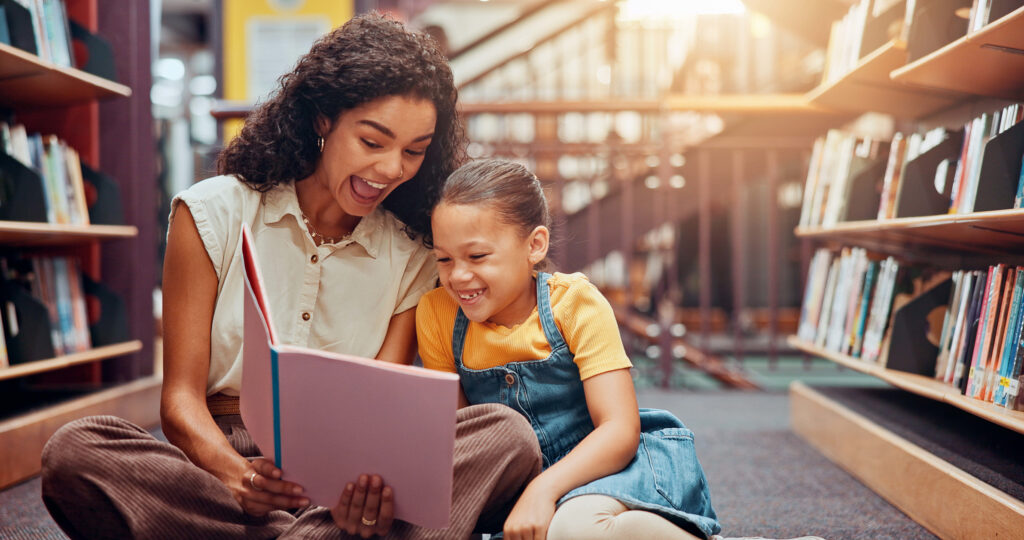You’ve been friends for years, but the light of her life has become a not-so-great example for the light of yours. Here’s what to do when your friend’s child – or any child, for that matter – proves to be a negative influence. 

Vancouver mom Hailey Foster* says she first noted a change in her three-year-old daughter Mia*’s behaviour shortly after they moved to a new neighbourhood. She was thrilled to be near her best friend Kelly*, whose daughter Isla* was about the same age as Mia. Within weeks of the move, her easy-going and kind daughter had morphed into a tantrum-y, bossy diva. Chalking it up to a typical preschooler phase, Hailey tried to overlook the shift of attitude and waited for it to pass.
Then Isla spent a week with her out-of-town grandparents, and suddenly everything changed. “Isla had always been more high-maintenance and rebellious than Mia, but I never really thought that spending time together would affect Mia’s temperament,” Hailey says. But when Mia – who saw Isla almost every day – spent just 48 hours without her friend and returned to her calmer self, Hailey took that as a cue to limit the amount of time the girls spent together.
“As much as I didn’t want to pull away from or jeopardize my relationship with Kelly, it was obvious that if I wanted my daughter to be the girl she was (and is around most kids), I couldn’t have her in situations where the worst in her always came bubbling to the surface.”
Carolyn Verrier from Englehart, Ont., had a similar problem when Alex, her now 13-year-old son, was a toddler.
“My friend has a daughter who is a few months older than Alex and we used to spend a lot of time together when the kids were small. She was generally very sweet, but as soon as toys were brought out and other kids were around, if she couldn’t have everything she wanted when she wanted it, she’d scream and holler and cry until she got her way.”
After almost a year of repeat performances and many purposely missed play dates, Carolyn mustered up the courage to talk to her friend about the behaviour.
“It was really difficult because obviously I didn’t want to hurt her, but it had gotten to the point where she didn’t discipline her child, and it had become the norm that Alex was afraid to touch toys around her or any other kid he was with. I had to look after him first.”
Carolyn had her priorities straight, says Alyson Schafer, a Toronto-based psychologist and parenting expert, who acknowledges this kind of situation requires a very gentle approach.
“These are the types of conversations that can be relationship breakers,” Alyson says, because what parents of the ‘good’ child don’t realize is, most parents who have the ‘bad’ kid are embarrassed. They don’t know why their kid is misbehaving, they’re discouraged, and making them feel bad doesn’t help.
Rather than point out the bad behaviour, Alyson recommends saying something like, “We’ve all had one of those days,” or “I know exactly how you feel.” And if your subtle hint at their child’s misbehaviour doesn’t help them see your concern, take matters – tactfully – into your own hands.
For example, you’re hosting a play date and your friend isn’t paying attention to her child. Her child starts hitting, grabbing toys or saying mean things to your kid. Intervene, but make it about your child – not hers. “Say something like, ‘Did it hurt when Tommy hit you? You should tell Tommy you won’t play anymore if he does that again’ means you’re not stepping on toes, but you’re still bringing unacceptable behaviour to light,” says Alyson.
Make an effort to look for the strength in every child – and take time to encourage positive traits. That may help curtail negative behaviour and avoid parent-to-parent conflict. Alyson says, “If the kids are lippy and demanding, say something like, ‘You know how to speak your mind, and that’s great, but in our house we use our manners when we ask for things.’”
This can be incredibly impactful, she adds. “All it takes is one adult to see the child beyond the behaviour to really make a difference.” Finally, keep this in mind. “We always think the ‘bad’ kids will influence the ‘good’ ones and want to separate them, but it’s really a matter of perception,” Alyson says. She theorizes that there aren’t ‘bad’ kids – only discouraged children who misbehave.
“In a situation where one kid is thought to be always causing problems, having them spend time with a child who is well behaved increases the likelihood that the discouraged kid will pick up some of those tendencies through positive friendships.”
Your friend did what?
Despite your best efforts to ensure your child
is surrounded by only perfect and well behaved children, sometimes kids
make friends with kids whose etiquette needs a bit of brushing up.
When that happens, try this advice from psychologist Alyson Schafer.
is surrounded by only perfect and well behaved children, sometimes kids
make friends with kids whose etiquette needs a bit of brushing up.
When that happens, try this advice from psychologist Alyson Schafer.
Lay out some boundaries.
Yes,
your child can choose her friends, but when a pal with
questionable manners or behaviour spends time in your home, inform
everyone about what does and doesn’t fly. Be clear about
acceptable language, conversations and family rules. Sometimes just
knowing that there are rules may discourage visits from kids with
unsavoury behaviour.
your child can choose her friends, but when a pal with
questionable manners or behaviour spends time in your home, inform
everyone about what does and doesn’t fly. Be clear about
acceptable language, conversations and family rules. Sometimes just
knowing that there are rules may discourage visits from kids with
unsavoury behaviour.
Wait and see.
Young
children between two and four go through different behavioural phases,
so before you make a rash decision to cut someone out of your child’s
life, try to limit the encounters (being careful not to be too
obvious) and wait until school age hits to form an opinion. By then,
you’ll have a better idea of what a child’s personality is shaping up to
be.
children between two and four go through different behavioural phases,
so before you make a rash decision to cut someone out of your child’s
life, try to limit the encounters (being careful not to be too
obvious) and wait until school age hits to form an opinion. By then,
you’ll have a better idea of what a child’s personality is shaping up to
be.
Teach your child accountability.
Every
human being is responsible and accountable for their actions, so just
because another child may have taught your child to swear or hit doesn’t
mean it’s okay for your child to repeat what they’ve learned. Be clear
about what is and isn’t okay in your family, and that there isn’t a free
pass to testdrive a bad behaviour.
human being is responsible and accountable for their actions, so just
because another child may have taught your child to swear or hit doesn’t
mean it’s okay for your child to repeat what they’ve learned. Be clear
about what is and isn’t okay in your family, and that there isn’t a free
pass to testdrive a bad behaviour.
Recognize that social status counts.
‘Bad’
kids can often have high social status, and kids are drawn to people
who act badly because they have clout. Social acceptance is the number
one thing in a kid’s world, so parents need to be cognizant of this and
realize that even if they don’t want their child associating with
certain friends, kids will sometimes try on friendships for size,
regardless of what Mom and Dad think.
kids can often have high social status, and kids are drawn to people
who act badly because they have clout. Social acceptance is the number
one thing in a kid’s world, so parents need to be cognizant of this and
realize that even if they don’t want their child associating with
certain friends, kids will sometimes try on friendships for size,
regardless of what Mom and Dad think.
Remember that making friends is a learning experience.
Kids
learn as much from having negative relationships as they do from having
positive ones, so try not to get involved, even if you see
problems coming. Ultimately, learning what they will and won’t accept
from a friend helps kids prepare for life, so you’re helping when you
let it be their decision on who to involve in their life.
learn as much from having negative relationships as they do from having
positive ones, so try not to get involved, even if you see
problems coming. Ultimately, learning what they will and won’t accept
from a friend helps kids prepare for life, so you’re helping when you
let it be their decision on who to involve in their life.










